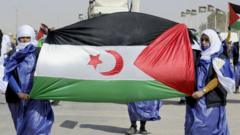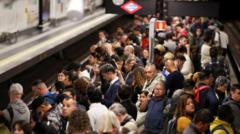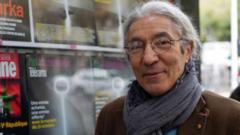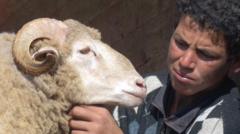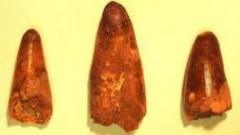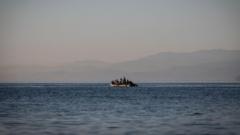In a nation where Eid al-Adha, known as the Feast of Sacrifice, typically involves the ritualistic slaughter of sheep, King Mohammed VI's recent announcement has provided a significant reprieve for many families facing financial strain. In light of ongoing economic difficulties and severe drought conditions, the king has recommended that Moroccans forgo purchasing sheep for the upcoming feast in June.
King Mohammed VI Offers Economic Relief: No Sheep Slaughter for Eid al-Adha

King Mohammed VI Offers Economic Relief: No Sheep Slaughter for Eid al-Adha
As Morocco grapples with prolonged drought and economic hardship, the monarch encourages a departure from tradition for this year’s holy celebration.
The king, who serves as both the political leader and the spiritual guide of Morocco, communicated his message through a letter delivered by Ahmed Toufiq, the Islamic affairs minister, on state television. He remarked, “Performing it under these difficult circumstances would cause certain harm to large segments of our people—especially those with limited incomes.” His statement reflects a deep concern for the welfare of his citizens during a period marked by lessened rainfall and increased food prices.
Morocco has faced significant climatic challenges over the past seven years, including record droughts linked to climate change. Recent reports indicate that rainfall is down by 53% compared to the historical average. Such conditions have significantly impacted agriculture and livestock, resulting in elevated meat prices and a lower supply.
While the traditions of Eid al-Adha include communal prayers and celebratory meals of lamb and mutton, the king’s decision to perform the sacrificial rite on behalf of the people brings a sense of relief to households struggling financially. This decision underlines the importance of community and compassion, especially in tough times when many families are caught between adhering to cultural practices and managing their economic realities.
Overall, King Mohammed VI's recommendation symbolizes a thoughtful approach to tradition in the face of changing circumstances, prioritizing the lives and well-being of the Moroccan people.
Morocco has faced significant climatic challenges over the past seven years, including record droughts linked to climate change. Recent reports indicate that rainfall is down by 53% compared to the historical average. Such conditions have significantly impacted agriculture and livestock, resulting in elevated meat prices and a lower supply.
While the traditions of Eid al-Adha include communal prayers and celebratory meals of lamb and mutton, the king’s decision to perform the sacrificial rite on behalf of the people brings a sense of relief to households struggling financially. This decision underlines the importance of community and compassion, especially in tough times when many families are caught between adhering to cultural practices and managing their economic realities.
Overall, King Mohammed VI's recommendation symbolizes a thoughtful approach to tradition in the face of changing circumstances, prioritizing the lives and well-being of the Moroccan people.







